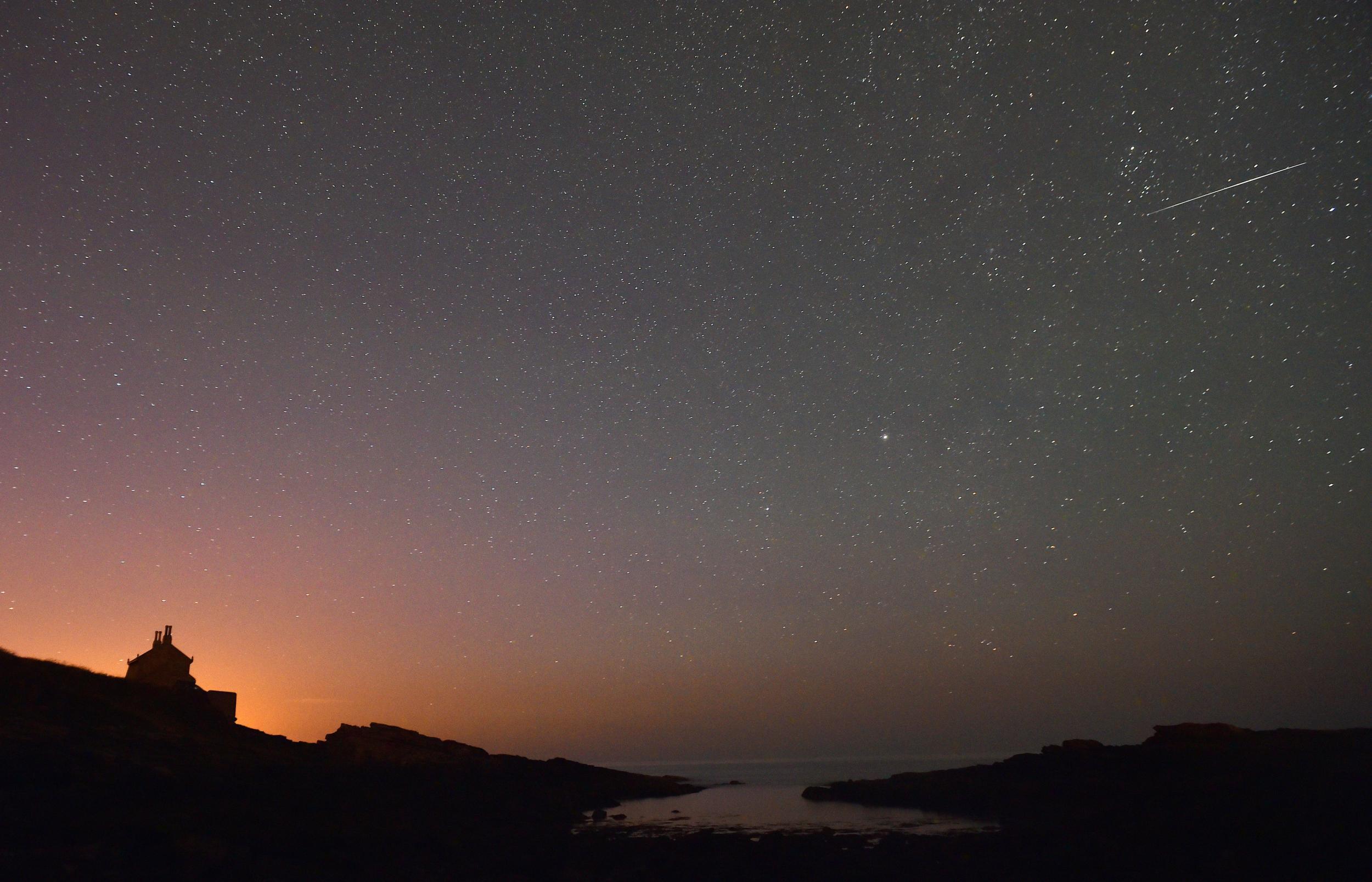Orionid meteor shower: When will it take place and what's the best way to see it?
Stargazers prepare for one of night sky's brightest shows

Dozens of shooting stars are set to light up the the night sky as Earth passes through debris of Halley's Comet.
The annual Orionid meteor shower, among the brightest events in the celestial calendar appear, peaks this weekend.
About 20 meteoroids every hour will blaze past at speeds of 148,000mph, (238,000kph) as they burn up in flashes of light that can be seen with the naked eye.
Here's how to give yourself the best chance of watching the sky show:
When can I see the Orionids?
The meteor shower usually lasts throughout October but it will peak this weekend between Friday 20 and Sunday 22 October.
The best chance to see it will be on Sunday morning, between midnight and dawn, when the sky is darkest and the shower will be at its brightest.
Tom Kerss, an astronomer at the Royal Observatory Greenwich, said: "We expect the peak to occur on the night of 21/22 October when the young crescent Moon will set conveniently before the radiant of the shower - the point from which the meteors appear to spread out - rises in the east."
Where is the the best place to watch the shower?
The meteors are visible across the world and can be seen across the sky.
NASA advises looking for Orion's club - the stars that make up part of the Orion constellation - then diverting your eyes to a darker part of the sky nearby.
"Meteors can appear anywhere in the sky, though if you have to pick a direction, you might fare slightly better looking east," added Mr Kerss.
As with any stargazing you'll get the best views in the countryside, where there will be less light pollution than in cities. Find a secluded spot away from city lights, if possible, and lie back to watch the sky.
Do I need to take anything?
Nothing more than a coat or a blanket to keep you warm.
Telescopes and binoculars won't offer you any advantage as the meteors will zip by too fast.
Mr Kerss said: "Your eyes are the best tool available for spotting meteors, so relax and gaze up at the sky, and eventually your patience will be rewarded."
He added: "Orionid meteors are known for their speed and brilliance, so if you persevere there's a good chance you'll see several bright 'shooting stars' zipping across the sky."
Join our commenting forum
Join thought-provoking conversations, follow other Independent readers and see their replies
Comments
Bookmark popover
Removed from bookmarks